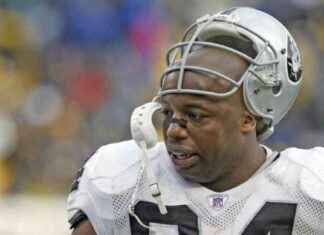The Four Hills Tournament is one of the great highlights for ski jumpers. For the Germans it turns into a debacle. The distance to the world leaders is frightening, national coach Stefan Horngacher is under pressure. Because the World Cup is already in sight.
At least one could still laugh. While the majority of German ski jumpers were obviously trying to classify the horror tour, Philipp Raimund beamed as if he had just won it. He was just “proud, happy and satisfied”, said the youngster of the German team after his twelfth place in Bischofshofen about his successful debut at the Four Hills Tournament. But there was nothing more to celebrate.
The jumping on Friday was the fitting end to a week that the whole of ski jumping Germany – except for Raimund – would like to forget all too quickly. “It feels like it got worse from hill to hill,” said Andreas Wellinger, eleventh best German in the final tournament rating, summing up the DSV debacle.
And yet: After “turbulent days with a lot of unpleasant things”, Karl Geiger and Co. obviously made an effort to raise hopes – especially with a view to the World Cup in February/March. He was “in good spirits,” said the 23-year-old, who started again as a beacon of hope. Geiger that the team will be competitive again by then: “We’ll get there.”
And Wellinger is also “relaxed” about the second highlight of the season in Planica, Slovenia. After all, he knows “what quality we have in the team”. With the exception of the start in Oberstdorf, there was hardly anything to be seen on this year’s tour.
Much more one could observe how the world class around the outstanding Halvor Egner Granerud, Dawid Kubacki and Anze Lanisek flew further and further away from the German team. In the hope of quick improvements, the pressure is on one man in particular: national coach Stefan Horngacher.
After many successful years in the ski jumping circus, the Austrian is going through his first major crisis. The relationship of trust with the team, assured Horngacher, was “absolutely” intact: “They know that we’re not the worst coaches and that we’re talking nonsense.”
So how do you get out of the current hole? Horngacher did not “yet” have an explanation for the poor tour performance after the jumping in Bischofshofen – and that is probably why he limited himself to the obvious. “Our top athletes are currently not able to show really good jumps,” analyzed the 53-year-old.
But only “over good jumps”, according to Horngacher, does self-confidence come back at some point, “that’s why we have to make sure that we find the lightness again”. Geiger complained that she was “never there anyway” on the tour. At the latest at the New Year’s competition in Garmisch-Partenkirchen “it went completely haywire, at the latest after Innsbruck the whole thing crumbled completely”.
In painstaking detail work, it will now be important for the German ski jumpers to pick up the crumbs left behind. “Every coach and every athlete will think about how we can get back to the front,” Wellinger assured – and of course exercised confidence.
“It’s not all bad,” emphasized the Olympic champion. That’s why all DSV eagles are well advised to “concentrate on the things that we need to develop as strengths, then the other things will go quickly again”. Ultimately, the only thing that remains here is the hope that it really is as easy to do as said.






